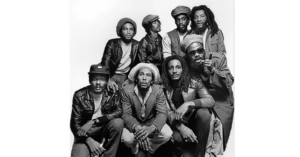Nine Inch Nails: Industrial Rock’s Visionary Force
Nine Inch Nails. Origins: The Birth of a One-Man Machine
Nine Inch Nails (NIN) was founded in 1988 by Trent Reznor, a multi-instrumentalist, producer, and visionary artist from Mercer, Pennsylvania. At the time, Reznor was working as a janitor and engineer at a recording studio in Cleveland, Ohio. Frustrated by the limitations of playing in bands, he began recording his own material, playing every instrument himself.
The result was “Pretty Hate Machine” (1989), a groundbreaking debut that merged , industrial noise, and emotional lyrics—delivering hits like:
- “Head Like a Hole”
- “Terrible Lie”
- “Something I Can Never Have”
Though industrial rock was largely underground, Pretty Hate Machine became a sleeper hit, achieving platinum status and laying the foundation for Reznor’s future dominance.
Nine Inch Nails. The Sound: Rage Meets Precision
Nine Inch Nails became known for a sound that fused aggressive electronics, distorted guitars, and introspective lyrics about pain, alienation, control, and desire. Reznor combined the mechanical harshness of industrial with accessible song structures, making the music emotionally powerful and sonically adventurous.
While Reznor often recorded albums alone, NIN’s live performances featured a full band and a notoriously intense stage presence, often involving destruction, blood, and catharsis.
The Downward Spiral and Mainstream Impact
In 1994, Reznor released “The Downward Spiral”, NIN’s masterpiece and a landmark in ’90s alternative rock. Recorded at the house where Sharon Tate was murdered by the Manson Family, the album delved into themes of nihilism, addiction, violence, and self-destruction.
Key tracks:
- “Closer” – Controversial for its explicit lyrics and video
- “Hurt” – Later famously covered by Johnny Cash
- “March of the Pigs”
- “The Becoming”
The Downward Spiral was a massive commercial success, cementing Reznor as a generational voice. NIN’s performance at Woodstock ’94, where the band emerged covered in mud and delivered a chaotic set, became legendary.
Nine Inch Nails. Artistic Evolution and Battles

Reznor followed up with “The Fragile” (1999), a sprawling double album full of sonic experimentation, lush instrumentals, and raw vulnerability. Though not as commercially successful initially, it’s now considered one of NIN’s most ambitious works.
During the 2000s, NIN released politically charged and experimental albums, including:
- With Teeth (2005) – Featuring “The Hand That Feeds” and “Only”
- Year Zero (2007) – A dystopian concept album with an elaborate alternate reality game
- Ghosts I–IV (2008) – Instrumental and ambient explorations
- The Slip (2008) – Released for free, showcasing Reznor’s fight for artistic independence
Reznor became known as a pioneer in digital distribution, fan interaction, and DIY music ethics, famously battling with record labels over control and pricing.
Nine Inch Nails. Later Work and Film Scoring
After a brief hiatus, Nine Inch Nails returned with:
- Hesitation Marks (2013) – A reflective, more electronic-focused album
- Bad Witch (2018) – A noisy, chaotic album influenced by David Bowie’s Blackstar
Meanwhile, Reznor’s artistic path expanded beyond rock. In partnership with Atticus Ross, he composed critically acclaimed film scores:
- The Social Network (Oscar winner, 2010)
- The Girl with the Dragon Tattoo (2011)
- Gone Girl (2014)
- Soul (Oscar winner, 2021, with Jon Batiste)
This side of his career proved that Reznor was more than a rock star—he was a composer, sound designer, and cultural innovator.
Nine Inch Nails. Live Performances: Controlled Chaos
NIN’s concerts are renowned for their stunning visual production, immersive lighting, and emotionally intense performances. Reznor approaches stagecraft with the same obsessive precision he brings to his music. The band has toured with artists like David Bowie and Soundgarden and remains one of the most dynamic live acts in modern rock.
Legacy and Influence
Nine Inch Nails revolutionized industrial rock and helped bring alternative and electronic music to the mainstream. Reznor’s blend of technology, aggression, and vulnerability has influenced countless artists across genres, including:
- Marilyn Manson (whom Reznor helped produce)
- HEALTH
- Kanye West (who cited NIN’s visuals as an inspiration)
The band was inducted into the Rock and Roll Hall of Fame in 2020, with Reznor being praised not only as a frontman but as one of the most innovative minds in music.
Fun and Lesser-Known Facts
- The band name “Nine Inch Nails” was chosen for its abbreviation and harsh aesthetic, not for a specific meaning.
- Reznor voiced himself in The Simpsons and wrote original music for the game Quake.
- In 2009, Reznor married Mariqueen Maandig of How to Destroy Angels, a side project they formed with Atticus Ross.
- NIN’s logo and graphic design are iconic in music branding, created by Gary Talpas and inspired by Russian constructivism.
Final Thoughts
Nine Inch Nails is more than a band—it’s an ever-evolving creative force driven by one of the most meticulous and emotionally intense artists in music history. Trent Reznor’s fearless exploration of inner torment, control, chaos, and beauty continues to shape the soundscape of modern rock, electronic, and cinematic music.





